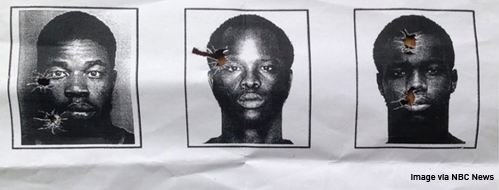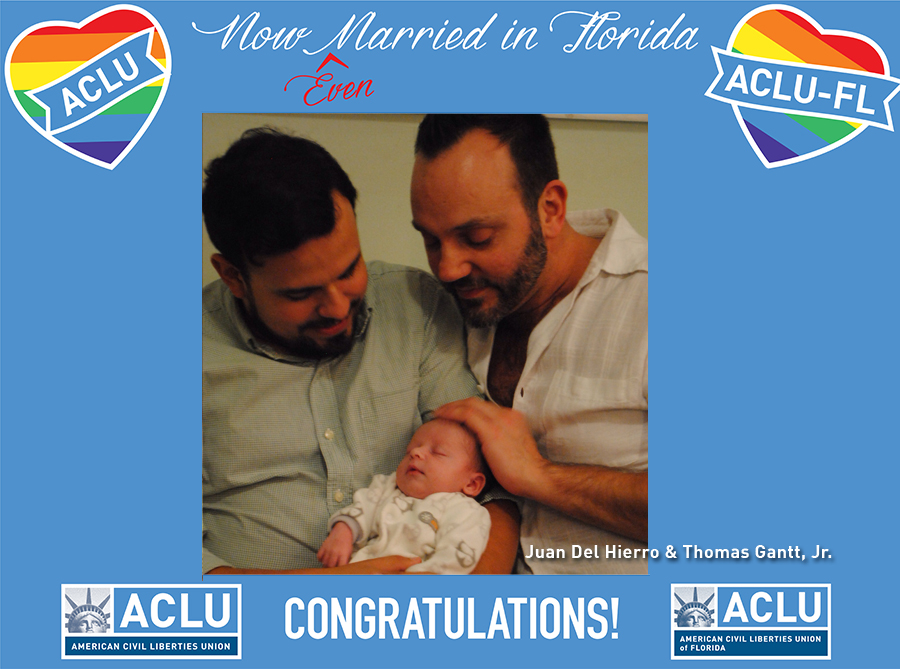The pictures of six black men stared back at me from the screen, the images of their faces shredded by bullet holes. It seemed like some kind of sick threat, but it was the work of a Florida police department.
This morning, I was greeted by the sickening news that the North Miami Beach Police Department (NMBPD) is using mug shots of black people and others for target practice. Mind you, these are not cartoons or computer-generated mug shots—these are photographs of real people, some of whom were arrested by the NMBPD itself.
I was amazed, appalled, and terribly disappointed by this practice. And if I was shocked, imagine the reaction of the Florida National Guard Band member who arrived at the shooting range last month only to find her brother’s 15-year-old mug shot, riddled with bullet holes, following target practice by NMBPD officers.
In the aftermath of Ferguson, many of the lessons we’ve learned about what works and what doesn’t in law enforcement have been reinforced. Among them is the importance of law enforcement working closely with communities to build trust. We learned that communities of color far too often view law enforcement officers as enforcers, not protectors, as a result of policies and practices that unfairly treat them like criminals.
We also know that valuing the lives of black people—and all people, for that matter—is critical to establishing healthy, collaborative relationships between law enforcement and the communities they serve. But if the NMBPD truly believes that “black lives matter,” they have a funny way of showing it.
This incident raises deep concern about whether the NMBPD understands the full implications of this practice and the message this sends to communities of color—especially since North Miami Beach Police Chief J. Scott Dennis has shrugged off the incident, saying that policies were not violated and that there is no discipline forthcoming for the officers involved.
Good policing isn’t just about policies written on paper, it’s about the relationship between law enforcement agencies and the communities they are entrusted with protecting. Mutual trust and respect between police and the communities they serve is critical for effective police work.
In a world where the images that bombard us reinforce unconscious racial biases, using the mug shots of black men for target practice reinforces the power of hidden bias to influence police conduct and perpetuate racialized policing. Whether policies were broken or not, having officers train by shooting at images of real life people from the community tells the community that the police see them as targets, engendering fear and resentment, not trust.
As ACLU’s Washington Legislative Director Laura Murphy put it in her testimony this week to the President’s Task Force on 21st Century Policing, a police culture that doesn’t respect the community, “results in a relationship based on mistrust between law enforcement and our low income communities and communities of color. Such a culture results in police killing unarmed black men with little accountability.”
The North Miami Beach Police has a duty is to serve and protect all communities equally, but anything that breaks down the trust that is critical for effective police work jeopardizes public safety. Using the mug shots of black people for police target practice raises serious concerns about their commitment to that goal.

